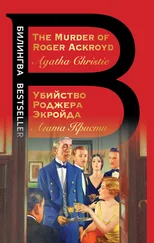Thomas stopped suddenly and pretended to look into the window of a record shop, although the bright posters and the glossy photographs shining in the neon light now seemed to him as strange as any objects brought up by a diver from the floor of the ocean. He kept himself unnaturally still as he stared at this display, but when after a minute he turned and walked on the other seemed as close as before.
Thomas went forward slowly, measuring pace by pace; he might have been engaged in that game where the feet must not touch the cracks in the pavement (or else, children say, you will break your mother's back), except that he never moved his eyes from the black coat of the figure in front of him.
The sun was rising above the houses of Spitalfields, a dull red circle like a reptile's eye, and although the man seemed still to be walking forward he was at the same time coming nearer: Thomas could see quite clearly his white hair, which curled over the collar of his black coat. And then the head turned slowly, and now the face smiles.
Thomas cried aloud, and ran diagonally across the street away from what he had just seen; he was running-back in the direction from which he had come, towards the church again, and as he ran he could hear the sound of footsteps chasing him (although, in truth, it might have been the echo of his own running steps). He turned the corner of Commercial Road and then, not looking back, he ran down Tabernacle Close at the end of which were the gates of the churchyard.
He knew that he would be able to squeeze his body through the railings in a way that no adult could: as yet the figure in Commercial Road might not have turned the corner, and he might get into the church itself unobserved. As he pushed his way through the gates, he saw the entrance to the tunnel and saw, also, that the planks which had been removed from its front had not yet been replaced. It was to this he ran, as to a place of refuge. He bent down, awkward and breathless, and scrambled through the damp entry: once more he thought he heard movement behind him, and in his panic he sprang forward before his eyes had become accustomed to the darkness. He did not know that there were stairs in front of him and he fell, twisting his leg beneath him as he tumbled down; the light from the opening of the tunnel, which he half-glimpsed as he lay sprawled at the bottom of the steps, then disappeared.
It was the odour of the passage which woke him, since it had crept into his mouth and formed a pool there. He was still lying where he had fallen, one leg tucked beneath his body; the floor of the passage was cold, and he could feel that coldness ascending into him. He seemed to have entered a world of profound silence but, as he raised his head to listen more acutely, straining every sense so that he might better understand his position, he could hear faint murmurs of wind or low voices which might have come from the streets outside or even from the tunnel itself. He tried to rise but fell back upon the ground when the pain returned to his leg: he dared not touch it but stared at it helplessly before leaning back against the damp wall and closing his eyes. Without thought he repeated some words which a boy had once chalked on the blackboard between lessons: 'A lump of coal is better than nothing. Nothing is better than God. Therefore a lump of coal is better than God'. And then he traced his own name with his finger on the cracked and broken floor. He had heard the children's stories about 'the house under ground' but at this moment he felt no particular fear -he had been living in the dark world of his own anxieties, and no infliction of reality could seem more terrible than that.
Now in the dim attenuated light he saw the outlines of the passage ahead of him, and some letters inscribed on the curved roof above him. He turned his head, although it hurt him to do so, but the entrance through which he had come seemed to have disappeared and he was no longer sure exactly where he was. He tried to move forward: he had heard many times, from the adults as well as the children of the neighbourhood, that there was one tunnel in this labyrinth which led straight into the church, and it was in this direction that he must surely try to go. He crawled back into the centre of the passage, and raised himself on his arms: using his elbows for grip, he pulled his body after them while all the time he kept his head up so that he might see what was in front of him. He was moving forward slowly when he thought he heard a sound, a scraping sound, at the end of the passage from which he had just come: he turned his head in terror, but there seemed to be nothing there. Thomas now felt hot despite the coldness of the air; he could sense the sweat running down his forehead and along the side of his nose, and he licked it off with his tongue as it swelled in drops upon his upper lip. The pain in his leg seemed to fluctuate with the beating of his heart so he counted the sequence out loud and then, at the sound of his own voice, he began to cry. He was crawling past small rooms or chambers just outside the range of his ordinary vision and yet he tried to move softly, so as not to disturb those who might dwell in this place. In his agony he forgot that he was still going forward, although his mouth was open and he was gulping for air.
Then a change came over him: the pain in his leg disappeared, and he could feel the sweat drying upon his face. He stopped, shifting himself so that he was once more propped against the cold wall, and then in a clear, calm voice he began to sing a verse which he had learnt many years before: Build it up with bricks and mortar, Bricks and mortar, bricks and mortar, Build it up with bricks and mortar, My fair lady.
Bricks and mortar will not stay,
Will not stay, will not stay,
Bricks and mortar will not stay,
My fair lady.
He sang this three times, and his voice echoed down the passages and rooms before fading away in the recesses of stone. He looked at his hands, which had become filthy from his exertions, and he spat on them before trying to wipe them clean on his trousers. Then, when he had forgotten about his hands, he examined the passage with great care, looking all around him with that interested expression children assume when they think that they are being watched. He ran his hand along the wall at each side of him, and just above his head, feeling the cracks and patches which had formed there: he clenched his fist and knocked upon the wall, which gave back a muffled sound as if it might contain hollow spaces within itself. Then Thomas gave a great sigh, bowed his head, and fell asleep. He was walking out of the passage; now he was through the upper door and ahead of him was a white tower; now he was standing upon the tower and was poised to dive into the lake. But he was afraid, and his fear became a person. 'Why have you come here?' she said. He turned his back upon her and, as he looked down at the dust upon his shoes, cried, 'I am a child of the earth!' And then he was falling.
When her son had not returned by tea-time, Mrs Hill grew worried.
She went up to his room several times, and on each occasion its emptiness disturbed her more: she picked up a book which had been left on a chair, and noticed how carefully her son had inscribed his name on the title page; then she peered down at the model which he had been constructing -her face immediately above the miniature labyrinth. At last she left the room again, closing the door quietly behind her. She went downstairs slowly and sat in front of the fire, rocking herself to and fro as she imagined all of the harm he might have suffered: she could see him enticed into a car by a stranger, she could see him knocked down by a lorry in the road, she could see him falling into the Thames and being carried away by the tide. It was her instinctive belief, however, that if she dwelled upon such scenes in sufficient detail she could prevent them from occurring: anxiety was, for her, a form of prayer. And then she spoke his name aloud, as if she were able to conjure him into existence.
Читать дальше












